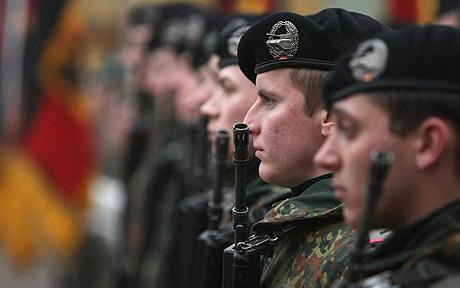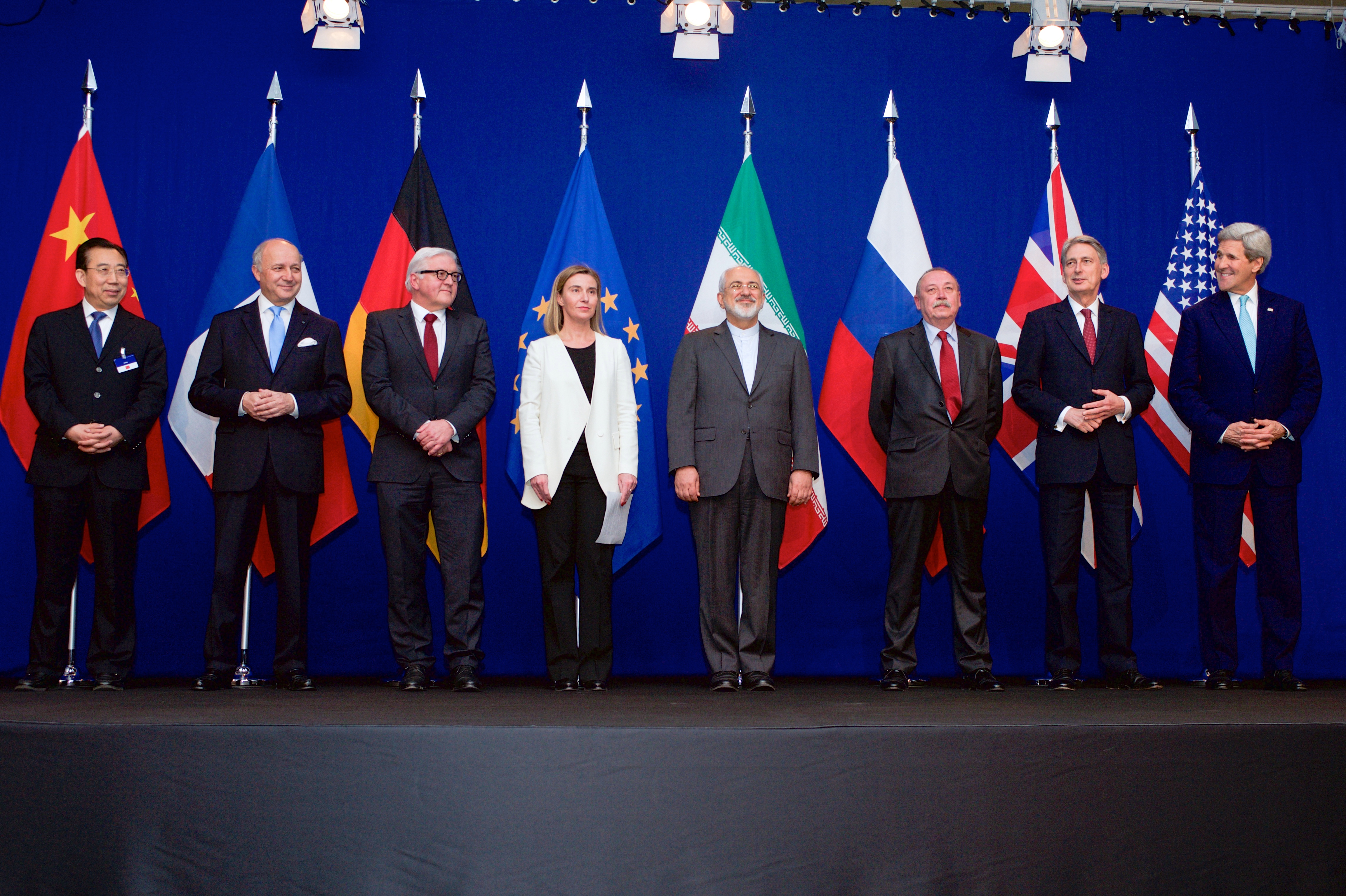
The wind of change
In a landmark decision that shocked many, the Federal Constitutional Court (FCC) of Germany ruled on Friday August 17 that German armed forces could be deployed on home soil in the event of a threat of “catastrophic proportions”. For a nation traumatized by its military history, this ruling proved to be highly controversial. The issue was not only the fact that the armed forces had their mandate expanded, but the unclear conditions of this expansion, as the FCC failed to specify what would constitute a threat of catastrophic proportions. The opposition heavily criticized the decision for its vague wording and controversial message, while the general population expressed its outrage by calling it a “gradual development towards dictatorship” and comparisons to Weimar.
First of all, let us look at exactly what this court ruling contains. It stipulates that, contrary to tradition since WWII which forbade the use of national armed forces on German soil, except when the nation was under attack, they can now be deployed on home turf, but only in “exceptional circumstances and catastrophic disasters”. Acts of terrorism are named as one such example. Furthermore, FCC specifically stresses that demonstrations do not fall into the category of such events, to calm the concerns of anyone who thinks that this is, indeed, a descent into autocracy. Finally, the court upheld its decision from 2006 that prohibits the shooting down of a hijacked passenger plane, even when there is danger of a terrorist act modeled on 9/11 on the basis of the fundamental right to life of passengers and crew on board the plane.
In fact, 9/11 was what gave impetus to this decision, which has been a work in progress since 2003. In January 2003, a man hijacked a motorized glider over Frankfurt and threatened to crash it into one of the buildings of the European Central Bank headquarters. The German Air Force sent two F-4 Phantom jets to monitor the plane, and the hijacker was eventually persuaded to land without causing any casualties or inflicting any damage.
This incident, reminiscent of 9/11, caused some German politicians to advocate for broadening the role of the army during such emergencies. As the police do not have assets for air policing, the military could be useful. Former Minister of the Interior Wolfgang Schäuble even went so far as to propose an amendment allowing the Air Force to shoot down such hijacked planes, but the FCC struck it down. However, the court continued to study other possibilities for the involvement of the armed forces, and finally came out with the present decision in August.
Controversy

Currently the German army is allowed to operate on home soil only as an act of self-defense in case the country is invaded. Soldiers are also enlisted to help out in national disasters, when local first responders are overwhelmed. So the population is not completely unaccustomed to seeing their uniformed compatriots. Then why is there all the controversy?
The main concern is the fact itself that the court decided to take a position on this issue. Some believe that this is a precursor of more to come, with the extremely alarmist views fearing the opening of a Pandora’s Box.
For example, what would happen if Germany faced waves of violent social unrest? The current decision very clearly prohibits the use of armed forces against demonstrations, but at what point does a demonstration get out of control and become dangerous? One thinks of the riots in England last summer, which resulted in some deaths, or the Greek and Spanish riots that became extremely violent with many injured and arrested. In all these cases the local police forces were scrambling to get a grip on the situation, and in the UK David Cameron even stated that he was prepared to use the army if riots of that scale were ever repeated. If something similar happens in Germany, would it fulfill the condition of exceptional threat or catastrophic disaster? Of course, one tends to think of Germans as the calm, cool, and collected type, but with the Euro crisis getting more and more serious, and with the German population rather fragmented with many foreigners living in tension as multiculturalism has failed, nothing is impossible. Could it be that at some level the politicians fear an explosive situation and want to prepare for any possibility in advance? This is a worrying issue that no one dares to broach.
This is not the first time the FCC has handed down a ruling giving the armed forces more power. In 1994 it broadened the definition of “defense” to allow the German forces to participate in peacekeeping missions. This decision was much less controversial. Although the dissenting judge criticized it as impermissible unless accompanied by a change of the constitution, German voters were generally in favour, because they supported peacekeeping missions as good foreign policy.
Continuing transformation of the German Armed Forces
Between the 1994 decision and this year’s ruling by the FCC, the German Army has undergone a lot of other changes. It is increasingly becoming more professionalized and better equipped. In other words, it is becoming more efficient, effective, and by extension, more dangerous.
First of all, Germany recently abolished conscription with 2012 being the first year when no young German was drafted into the army. The best armies in the world today are professional and highly technological. Network Centric Warfare (NCN) is the increasingly preferred way of conducting military operations. NCN creates a highly computerized space which gives all battle participants – from the commander all the way to every last soldier – the same awareness of the operation. Such a complicated system cannot function well relying on conscripts, because it requires long training and professional knowledge of the technology involved. It is not cost-effective to train drafted soldiers who may or may not use it for a few months and leave. Besides, abolition of conscription also cuts down costs as the sheer number of soldiers will drop from 222,000 to 170,000.

Other changes include the acquisition of cutting-edge equipment. For example, in October 2011, the Bundeswehr unveiled “Euro Hawk”, a super drone for gathering intelligence. It can fly non-stop from Berlin to Tokyo and back, at an altitude of 20,000 metres, and pick up TV and radio signals, as well as intercept phone calls and text messages. Although there is only one such drone in the possession of the German forces, and its entry into service has been postponed for a year until 2013, it already constitutes a revolution in the Bundeswehr’s intelligence-gathering capabilities.
Another innovation is the new infantry equipment intended to improve the NCN capacity of German soldiers by bringing them into the technological loop consisting of reconnaissance, command and control components and weapons, and enabling rapid exchange of information as well as shared situational awareness as the basis for planning and conducting operations. The initial order is only for 900 soldiers and it will be first worn by units deployed to Afghanistan in 2013 and 2014, but there are already many hopes for its high success in the field.
Finally, only a few weeks ago, a missile defence unit at an army base at Kaiserslautern got a state-of-the-art tactical operations center. It is another example of high-level military technology. The center is also mobile and can be set up or torn down in less than a day, giving it additional advantages.
So while the German defense budget is shrinking, the efficiency of the Bundeswehr seems to be on the rise. All these changes come after heavy disapproval from observers as well as fellow NATO members of Germany’s military cut-backs and reluctance to provide meaningful assistance in alliance operations. This pressure has pushed the German government into action with military reforms. Although there is a lot of criticism of these reforms from the military establishment itself, it is too early to write them off as unsuccessful.
Crossing the line?
Some commentators are worried that amid all these changes to the laws and modernization of armed forces, Germany is losing some of the basic principles that had governed its politics for decades now. An example worth mentioning is the deal to sell 200 2A7+ Leopard tanks to Saudi Arabia reported by Reuters last summer. While Germany had been exporting arms to many countries, including Saudi Arabia, tanks have always been a separate issue, and a taboo at that. As they can be used to break up demonstrations, observers say that it can implicate Germany in violation of human rights, such as when Saudi forces were suppressing protests in Bahrain in 2011. According to Jürgen Grässlin, spokesman for the campaign “Action Outcry”, Saudi Arabia has been asking for German tanks since the 1980s, but up until now all the German governments – from Chancellor Helmut Kohl onwards – have refused to allow them.
These changes in Germany’s arms exports indicate a potentially worrying trend. As German Justice Minister Sabine Leutheusser-Schnarrenberger said, “Just because something is possible under constitutional law does not mean it is politically justified.”
Conclusion
Considering all of the above – modernization of the German armed forces, new weapons exports, and changes in the army mandate – there are people who tend to voice alarmist opinions. It is, of course, not justified. There is no way Germany is on the path toward autocracy or any such extreme possibility. People get used to everything: Germans got used to an idle army over the past several decades, while the French, for example, are used to seeing armed soldiers on the streets of major cities protecting landmarks. It is normal. However, it does not mean that a laissez-faire attitude is welcome. In the midst of tumultuous times that continually see major changes, it is the responsibility of the voters to be vigilant about the steps their governments take. A trend in Germany toward a more active and effective army is one of those things that needs to be watched attentively.




